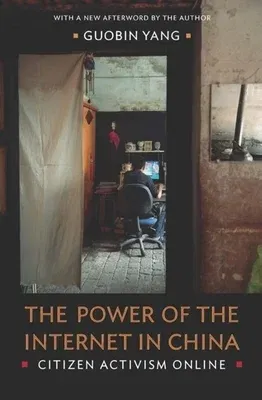Guobin Yang
(Author)The Power of the Internet in China: Citizen Activism OnlineHardcover, 26 June 2009

Qty
1
Turbo
Ships in 2 - 3 days
In Stock
Free Delivery
Cash on Delivery
15 Days
Free Returns
Secure Checkout

Part of Series
Contemporary Asia in the World
Print Length
320 pages
Language
English
Publisher
Columbia University Press
Date Published
26 Jun 2009
ISBN-10
0231144202
ISBN-13
9780231144209
Description
Product Details
Author:
Book Format:
Hardcover
Country of Origin:
US
Date Published:
26 June 2009
Dimensions:
22.86 x
15.24 x
2.79 cm
ISBN-10:
0231144202
ISBN-13:
9780231144209
Language:
English
Location:
New York
Pages:
320
Publisher:
Weight:
566.99 gm